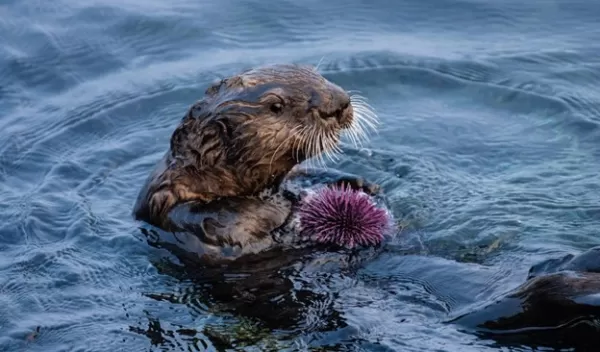
Sea otters keep remaining California kelp forests alive
Sea otters have long been recognized as a classic example of a keystone species, a dominant predator that maintains the balance of kelp forest ecosystems by controlling populations of sea urchins, which are voracious kelp grazers.
Since 2014, however, California's kelp forests have declined dramatically, and vast areas of the coast where kelp once thrived are now "urchin barrens," the seafloor carpeted with purple sea urchins and little else. This has occurred even in Monterey Bay, which hosts a large population of sea otters.
University of California, Santa Cruz researcher Joshua Smith set out to understand why. "Here in Monterey Bay, we now have a patchy mosaic, with urchin barrens devoid of kelp directly adjacent to patches of kelp forest that seem pretty healthy," Smith said. "We wanted to know: how did this sea urchin outbreak happen where there are so many otters, how did the otters respond, and what does that mean for the fate of kelp forests here on the Central Coast?"
Working with a team of sea otter researchers, Smith conducted intensive underwater surveys along the Monterey Peninsula over a span of three years. The study built on decades of long-term monitoring of sea otter populations and kelp forest ecosystems along the California coast.
The findings of the U.S. National Science Foundation-funded research, published in Proceedings of the National Academy of Sciences, tell a story of how the behavioral responses of predators and prey to changing conditions can determine the fate of an entire ecosystem.
"This study not only fine-tunes our understanding of the role of sea otters in kelp forests; it emphasizes the importance of animal behavior," Smith said. "So much of this is driven by behavior -- the urchins shifting their behavior to active foraging, and the otters choosing to prey on healthy urchins in the kelp forest. These behavioral interactions have implications for the overall fate of the ecosystem."
Added Cynthia Suchman, a program director in NSF's Division of Ocean Sciences, "This study demonstrates that otters will go where the best food is and that smaller-scale details matter for kelp ecosystems."
